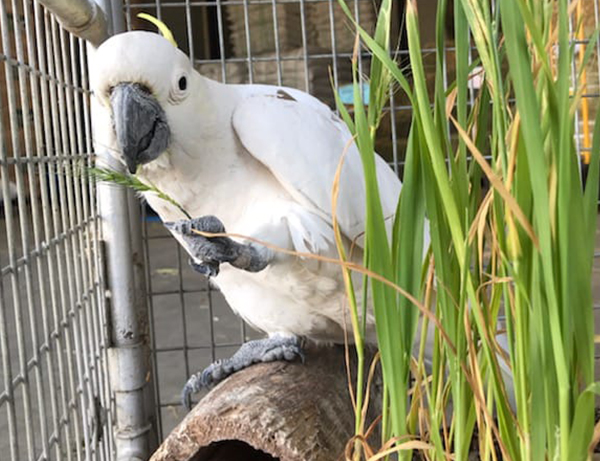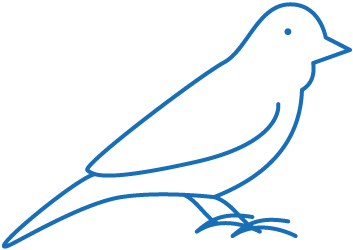Sprouted seeds are an extremely valuable and nutritious addition to a bird’s diet. Most birds find it very palatable and the nutrients are more readily digested than dry seed. Sprouted seeds also contain larger quantities of carbohydrates and protein, but also have less fat than found in dried seeds. This makes it especially important for breeding season and when chicks have hatched, young fledglings or breeding birds that have more demanding nutritional requirements. However, all birds at any time of the year will benefit from spouted seeds a couple of times a week.
Sprouted seeds are not only for all Parrots, but are also suitable for Finches, Canaries, and even large birds like Chickens, Ducks, Guineafowl and many more. The quantity is based on how many birds you have and how large they are. For the smaller flight birds, a small container or pot with a thick layer of seed is a good amount, because when the seeds sprout, it will look like a thick grass that the birds can dig in. For the larger birds a trough or a larger pot will do, with a thick layer of seed to make a grass like thickness. Chickens will dig the seeds out, so a good idea so a good option to ruining the lawn!
Seeds should take at least a week to germinate, so we aim to have a few in different stages of the growth cycle. You’ll find the sprouted seeds trolly at the front of our store.
Seeds that a suitable are:
- French White Millet
- Millet Seed
- Linseed
- Safflower
- Grey Stripe Sunflower
- Wheat
- Oats
- Barley
Difference between water sprouting and soil:
Birds could contract a fungus infection or a respiratory illness from seeds that are sprouted in water. The reason being, that when you sprout seeds in water, the seed needs cleaning every few hours so that the seed does not get any slimy textures and mould growing. This is one way respiratory infections in birds occur because they eat a seed that has mould on it and breathe in the mould, that equals a very sick bird, and we all know with birds, they show signs when it’s too late! Water sprouting is a risky procedure.
Sprouting in soil means less chance of the seed becoming mouldy. The soil promotes germination by holding warmth and water. Once the seed has sprouted, it will last like another plant, where-as water sprouted seeds quickly lose their freshness.













Our bagged oats are back in stock 30kg bags ... See MoreSee Less
0 CommentsComment on Facebook
We've added to the discount pallet:
Drover dog food
Cobber working dog
Cobber healthy weight adult dog
Coprice working dog
Stockman and Paddock grain free adult dog
Blackhawk puppy medium breed
Prydes old timer (horse)
Hypro premium adult dog grain free ... See MoreSee Less
0 CommentsComment on Facebook
Sweetbulk 25kg bag $42.50
Sweetbulk Original is a fully balanced, economical, total ration for mature and lightly exercised horses.
It is a cool, moist, palatable ration with NO dust and is an ideal replacement for oaten and wheaten chaff.
Sweetbulk contains Omega 3 Oils and optimum vitamins and minerals as well as ingredients that are attractive to horses such as molasses which increases the appetite of fussy eaters. It also contains a portion of non-digestible roughage. This helps prevent the build up of sand in the gut and reduces the risk of colic when fed continuously at the recommended rates.
#sweetbulk #horsefeed #HorseHealth ... See MoreSee Less
0 CommentsComment on Facebook
Buy in bulk this Christmas season equals less time shopping and more time to relax with your cat 🐈👇
Stockman and Paddock dry cat food 10kg $49.90
with Omega 3 and 6 fatty acids
complete and balanced
no added artificial colours or flavours
made in Australia ... See MoreSee Less
0 CommentsComment on Facebook
Last weeks to enter for your chance to win the Hairy Pony pack (ends 31 Dec)
Spend $75 on any mix of Ammo horse wormers or Energetic Isotonic and enter the draw.
#CevaEquine #horsewellness #equinehealth #ammohorsewormer #chalkboardspecials ... See MoreSee Less
0 CommentsComment on Facebook